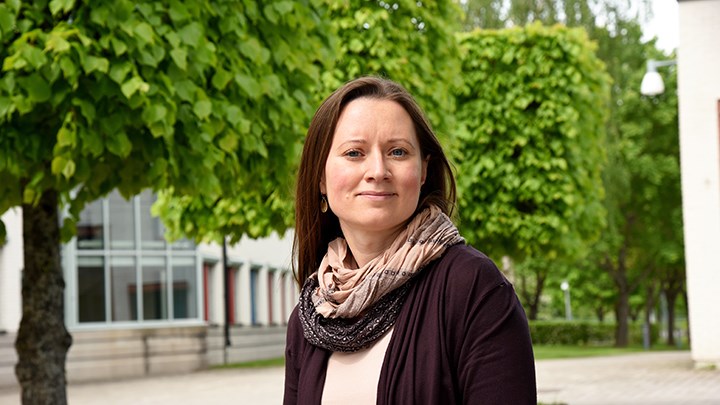Meaningfulness is essential for older people with diverse experiences of pain

"It's crucial for older people to maintain a connection with their neighbourhood, feel secure in their surroundings, and have good social contacts in their daily lives," says Nadezhda Golovchanova.
Experiencing meaningfulness is the most important factor for older adults living both with and without pain. This is demonstrated by new research conducted at Örebro University, which is based on the results of a survey involving over 600 participants.
"Previous studies on pain in older people have seldom examined existential factors. Our research indicates that meaningfulness is a key factor," says Nadezhda Golovchanova, researcher in psychology and who conducted the survey with a team of researchers.
The study examined how various factors influence the quality of life of older adults, both those experiencing pain and those who are not. The results indicated that for older people who do not frequently experience pain, as well as for those who experience pain but are not hindered by it in their daily lives, meaningfulness emerges as the most significant among all the biological, social, psychological, and existential factors considered.
The group of older adults experiencing pain that impacted their daily lives stood out from the rest. In this group, anxiety was the most significant factor affecting their well-being.
"It's essential to assist these individuals in managing their anxiety so they can lead the best lives possible. Our study indicated that reducing anxiety likely helps diminish depression and feelings of insecurity among older adults whose pain disrupts daily life. However, even for this group, having a sense of meaning is crucial," says Nadezhda Golovchanova.
Social factors play a role
In addition to the existential factors raised in the survey, this research differs in that it focuses on older adults. Very little is known about older adults' experiences of living with pain.
For older individuals experiencing pain yet viewing it as non-problematic in their daily lives, social factors also played a significant role.
"It's crucial for older people to maintain a connection with their neighbourhood, feel secure in their surroundings, and have good social contacts in their daily lives," says Nadezhda Golovchanova.
The study utilised network analysis, a research method that examines the relationships between various factors instead of directly comparing them.
Significant differences in quality of life
Understanding which factor correlates most strongly with others allows for changes or treatments to that factor to create a ripple effect on many other factors, resulting in significant differences in quality of life.
Chronic pain is a frequent condition among older adults. It is estimated that between 25 and 50 per cent of individuals over the age of 65 experience long-term pain.
Text: Kerstin Önnebo
Arkivfoto: Jasenka Dobric
Text: Kerstin Önnebo
Photo: Jasenka Dobric
Translation: Jerry Gray
